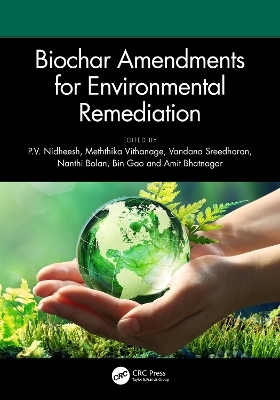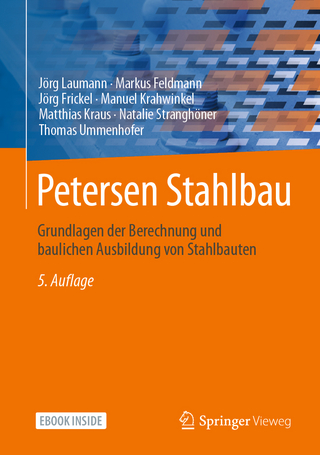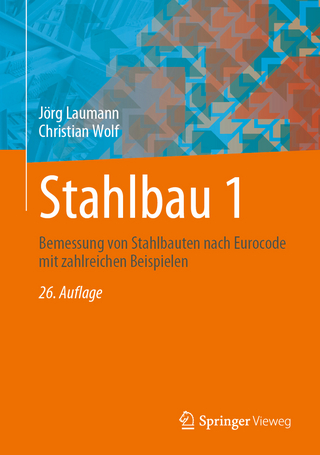
Biochar Amendments for Environmental Remediation
CRC Press (Verlag)
978-1-032-38390-3 (ISBN)
- Noch nicht erschienen (ca. Dezember 2024)
- Versandkostenfrei innerhalb Deutschlands
- Auch auf Rechnung
- Verfügbarkeit in der Filiale vor Ort prüfen
- Artikel merken
In the captivating book "Biochar Amendments for Environmental Remediation," readers are invited to explore the critical role of biochar in fostering a cleaner environment through its eco-friendly, cost-effective, and sustainable applications such as removal of diverse pollutants from water and wastewater.
With 27 insightful chapters contributed by leading researchers worldwide, this book unravels the complexities of biochar production, its characteristics, and its multifaceted roles in environmental remediation. From pilot-scale production methods to removing heavy metals and micropollutants, this book comprehensively explores biochar's potential for sustainable environmental protection. Discover the cutting-edge advancements in biochar technology and gain valuable knowledge on its pivotal role in mitigating environmental challenges. Join the global discourse on biochar's diverse applications, risks, and the future of adsorption-based pollutant removal strategies.
"Biochar Amendments for Environmental Remediation" is aimed at researchers, professionals in environmental engineering and anyone passionate about environmental stewardship and seeking innovative solutions for a greener, and healthier planet. Embark on a journey of discovery and empowerment as you explore the transformative potential of biochar in shaping a sustainable future.
Dr. P. V. Nidheesh completed B. Tech. in Civil Engineering from Government College of Engineering, Kannur, Kerala, India; M. Tech. in Environmental Engineering and Ph. D. from National Institute of Technology Trichy, Tamilnadu, India. After the completion of doctoral degree, he worked as an adhoc faculty at National Institute of Technology Calicut, Kerala, India and as an Associate Professor at Vimal Jyothi Engineering College, Chemperi, Kannur, Kerala, India. Currently he is working as a principal scientist at CSIR-National Environmental Engineering Research Institute, Nagpur, India. His research interest includes, water and wastewater treatment, and advanced oxidation processes. He has published several international journal articles, conference articles, book and book chapters. He is an author of highly cited and highly downloaded articles. He is one of the highly cited researcher 2023. He is serving as an editorial member for journals including Environmental Research, Environmental Technology, Environmental Advances, Soil and Environmental Health, Water, European Journal of Chemistry, and Environmental Quality Management. Prof. Meththika Vithanage is an esteemed Professor and founding director of the Ecosphere Resilience Research Centre at the University of Sri Jayewardenepura, Sri Lanka, her pioneering vision has propelled her to the forefront of global scholarship. Prof. Vithanage's influence extends far beyond her home institution, as evidenced by her roles as an Adjunct Professor at the Institute of Agriculture, University of Western Australia, Sustainability Cluster, University of Petroleum and Energy Studies, India and the National Institute of Fundamental Studies, Sri Lanka. Recently appointed as an Eminent Visiting Scientist at the Saveetha Institute of Medical and Technical Sciences, India, she continues to illuminate pathways for innovative research and collaboration. With a multifaceted academic background spanning water chemistry, environmental remediation, microplastics, and waste biomass conversion, Prof. Vithanage has earned international acclaim for her groundbreaking contributions. Recognized as a Highly Cited Researcher by Clarivate, she epitomizes excellence, ranking within the top 0.1% of highly cited scientists globally. Prof. Vithanage's accolades, including the prestigious Fayzah M. Al-Kharafi award from The World Academy of Science (TWAS) in 2020 attest to her unwavering commitment to scientific excellence. With a prolific publication record comprising over 250 SCI-indexed journal articles, 60 book chapters, and 10 co-edited books published. Prof. Vithanage's citation record, exceeding 25,000 with an H-index of 78, reflects the profound impact of her research on global discourse and practice. Dr. Vandana Sreedharan is a seasoned academician in the field of geo environmental engineering at Government College of Engineering Kannur, India. Her research interests include use of sustainable materials for environmental control, modifying clays for use in engineered barriers and soil improvement. Through her research she has explored multi-disciplinary approaches and Vandana's dedication to her field is evident in her commitment to integrate sustainability and resilience in geo environmental systems. With a strong background in civil engineering and geo environmental engineering, she has published numerous research papers in reputable journals. She is also actively involved in mentoring students and guiding them in their research projects. Vandana is a recipient of many fellowships and awards including the Endeavour fellowship from the Australian Government. Dr. Nanthi Bolan is the Professor of Soil Science at the School of Agriculture and Environment, The University of Western Australia. He is leading the Soil Carbon Research group within the school. Nanthi’s teaching and research interests include agronomic value of manures, fertilisers and soil amendments, soil acidification, nutrient and carbon cycling, pesticide and metal pollutants interactions in soils, greenhouse gas emission, soil remediation, mine site revegetation, and waste and wastewater management. Nanthi is a Fellow of American Soil Science Society, American Society of Agronomy and New Zealand Soil Science Society, and was awarded the Communicator of the Year (2005) award by the New Zealand Institute of Agricultural Sciences. Nanthi served as the Associate Editor of Critical Reviews in Environmental Science and Technical Editor of Journal of Environmental Quality. He served as the Program Leader of Cooperative Research Centres for High Performance Soil (SOIL CRC) and Contamination Assessment and Remediation of the Environment (CRC CARE). He is currently serving as the College of Experts of Australian Research Council and College Member of Ministry of Business, Innovation & Employment (MBIE), New Zealand. Nanthi has supervised more than 50 postgraduate students, and was awarded the Massey University Research Medal for excellence in postgraduate students’ supervision. Nanthi has published more than 500 book chapters and journal papers with a total citation of > 48,000 and h-index 109, and is one of the Thomson Reuters Highly cited researchers for 2018 to 2022. Bin Gao is the Kodak Chair Professor in the Department of Civil and Environmental Engineering at Rensselaer Polytechnic Institute. Prior to this, he was a professor at University of Florida, a research associate at Cornell University, and a postdoctoral research associate at Yale University. He earned his PhD degree at Cornell University and his B.S. and M.S. degrees at Nanjing University. Prof. Gao’s research mainly focuses on biochar, environmental nanotechnology, and contaminant fate and transport. He has an extensive list of publications in the field of environmental science and engineering. Prof. Gao has received several prestigious awards and professional honors such as Fulbright Distinguished Scholar, SSSA Fellow, Highly Cited Researcher, and NSF CAREER Award. Dr. Amit Bhatnagar is a Full Professor of Wate Treatment at the Department of Separation Science, LUT University, Finland. He is the Group Leader of Water Treatment and Algal Biotechnology Research at LUT University. He is also Head of the Master’s Degree program of Water Technology at LUT University. Earlier, he worked as a faculty at the University of Eastern Finland (2014-2020). He was awarded reputed research fellowships and conducted his postdoctoral research in various countries (Sweden, Portugal, Germany, Finland, South Korea, India, and Switzerland). Bhatnagar’s research interests include wastewater treatment, carbon capture (biofixation) and resource recovery using microalgae and microalgal consortium and the production of value-added products from algal biomass. He and his team members also focus on the synthesis of a variety of functional materials (e.g. biochar, nanocellulose, aerogels, functionalized clays, and other nanomaterials/nanocomposites) for the removal of conventional and emerging pollutants/micropollutants/persistent chemicals from water and wastewater using different technologies. He has published ca. 300 peer-reviewed research/review articles. His current H-index is 83 (Scopus) with >25,000 citations and he is one of Clarivate’s (Web of Science) Highly Cited Researchers (2018-2022). Prof. Bhatnagar serves as Editor/Editorial Board Member of several journals including Environmental Pollution, Environmental Technology & Innovation, Water Resources and Industry, Carbon Resources Conversion, Critical Reviews in Environmental Science and Technology, ACS Chem & Bio Engineering, etc.
Section 1: Production, Characterization And Applications Of Biochar 1. Methods Of Biochar Production, Its Modifications And Characterization 2. Challenges In Pilot Scale Biochar Production Section 2: Biochar In Air Pollution Control And Climate Change Mitigation 3. Application Of Biochar In Volatile Organic Compounds Removal 4. Toxic Elements Emission Reduction In Biochar-Coal Co-Combustion Systems 5. Role Of Biochar In Achieving Climate Resilience And Climate Change Mitigation 6. Biochar As A Carrier For Carbon Neutrality Section 3: Biochar For Soil Decontamination 7. Biochar Assisted (Facilitated) Remediation Of Heavy Metals In Soil 8. Biochar Applications For Remediating Saline Soils 9. Biochar : An Emerging Solution For Mine Land Reclamation 10. Biochar For Treating Polluted Sediments Section 4: Role Of Biochar In Solid Waste And Sludge Management 11. Biochar In Bio Covers To Reduce Emissions From Waste Disposal Facilities 12. Biochar Enhanced Sludge Dewatering 13. Role Of Biochar In Composting Section 5: Emerging Applications Of Biochar In Water And Wastewater Treatment 14. Control Of Emerging Contaminants And Micropollutants In Water 15. Development Of Antibacterial Biochar Nanocomposite And Its Application In Water Treatment 16. Modified Biochars And Its Applications In Water And Wastewater Treatment 17. Biochar Based Engineered Barriers (Permeable Reactive Barrier) 18. Resource Recovery From Wastewater By Biochar 19. Biochar In Subsurface Wastewater Infiltration Systems And In Constructed Wetlands 20. Biochar Based Catalysts In Advanced Oxidation Processes 21. Biochar Based Microbial Fuel Cell Section 6: Real Field Implementations And Challenges 22. Potential Health Risks Related To Handling And Storage Of Biochar 23. Environmental Risks Associated With Biochar Applications 24. Life Cycle Analysis And Cost-Benefit Analysis Of Biochar 25. Feasibility Of Supply Chain Of Biochar For Environmental Applications 26. Biochar Filters And Its Application In Drinking Water Treatment 27. Development Of Biochar Based Household Water Treatment Units 28. The Sustainable Applications Of Biochar For Environment Control And Promoting Circular Economy
| Erscheint lt. Verlag | 2.12.2024 |
|---|---|
| Zusatzinfo | 37 Tables, black and white; 65 Line drawings, black and white; 35 Halftones, black and white; 100 Illustrations, black and white |
| Verlagsort | London |
| Sprache | englisch |
| Maße | 178 x 254 mm |
| Themenwelt | Technik ► Bauwesen |
| Technik ► Elektrotechnik / Energietechnik | |
| Technik ► Umwelttechnik / Biotechnologie | |
| ISBN-10 | 1-032-38390-9 / 1032383909 |
| ISBN-13 | 978-1-032-38390-3 / 9781032383903 |
| Zustand | Neuware |
| Haben Sie eine Frage zum Produkt? |
aus dem Bereich


